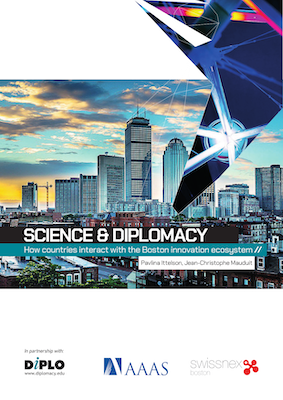Note: This article is a part of the publication ‘Science diplomacy capacity development: Reflections on Diplo’s 2021 course and the road ahead’
My journey to becoming a scientist started, like many, with curiosity. I wanted to understand how the world worked and I naively believed that if I could understand, then I could make the world a better place. The world is, however, a bit more complex than that. Simply knowing something is only part of the way to a solution. We may ‘know’ that deforestation is occurring at a rapid rate, but how do we solve this? We may ‘know’ that climate change is occurring, but who should pay the costs to mitigate it?
With this more nuanced realization, I began to explore science policy and Science Diplomacy as potential career paths after my PhD. Over the past year, I have been fortunate to work with Diplo to develop a module for their new course on Science Diplomacy with a focus on sustainable development.
To me, the central challenge of creating the course was communicating science in a way that is useful for diplomatic practitioners. Science is a systematic process for understanding the world. Diplomacy is a process of interaction and negotiation between states. Both are necessary for addressing sustainable development, but how?
When scientists practice science, they are often interested in the claims being made, and the evidence for those claims. Does the evidence match the conclusion proposed by the scientists? Scientists are interested in the assumptions that go into the research, and how they affect the final conclusions. This is how I have been trained to think like a scientist, and it is an incredibly valuable skill – for a scientist. Diplomacy, however, requires other skills. Knowing the quality of the research, and the strength of the conclusions can tell me how good the information is, but it tells me nothing about what I should do about it. Scientists could provide estimates about what could happen in the future, but which scenario is the most desirable is a matter of values.
I found that in my initial attempts to create the module, I focused on teaching science like a scientist – the theories behind what we know – but I quickly found that this was not working. Knowing all the scientific minutiae that are used to produce information would just put diplomats in the same position as scientists: knowing information, but not being able to act on that information. The other end of the spectrum would be to only teach the conclusions, to teach diplomats a collection of scientific trivia about the world. But this is also problematic. For sustainability, there often isn’t just one scientific answer, as different scientists with different perspectives reach different conclusions.
In my module, I decided not to discuss what science does, or provide a collection of scientific trivia. Instead, I discussed the process of science, and then what diplomacy can do with the information produced by said process. So, instead of listing information that we learned from science, to discuss science as a process of producing information. To me, this distinction matters.
If we are to make progress on sustainable development, we need to be able to measure that progress – this is a matter of science. Diplomacy practitioners do not need to know exactly how these measurements are made. They do, however, need to know the implications of what they mean (and what they do not mean). I hope this more nuanced perspective can lead to just and equitable science-based diplomacy in the future.
Apart from the intellectual joy of creating the course, I also personally enjoyed the collaboration, and I am inspired to keep working at the intersection of science and diplomacy as I further my career!








